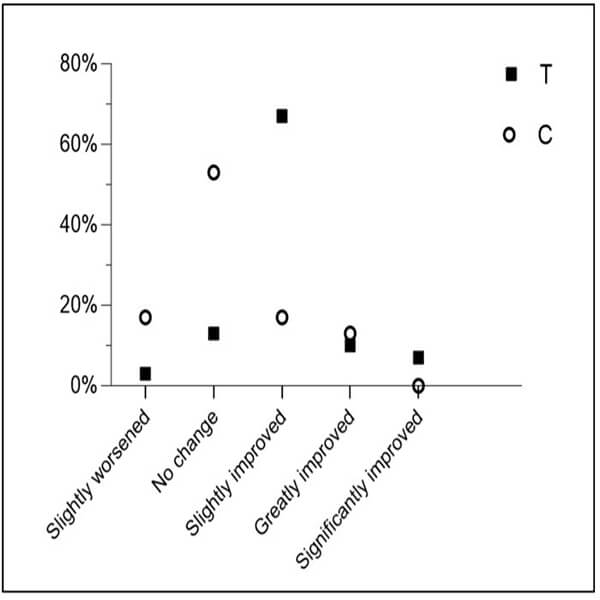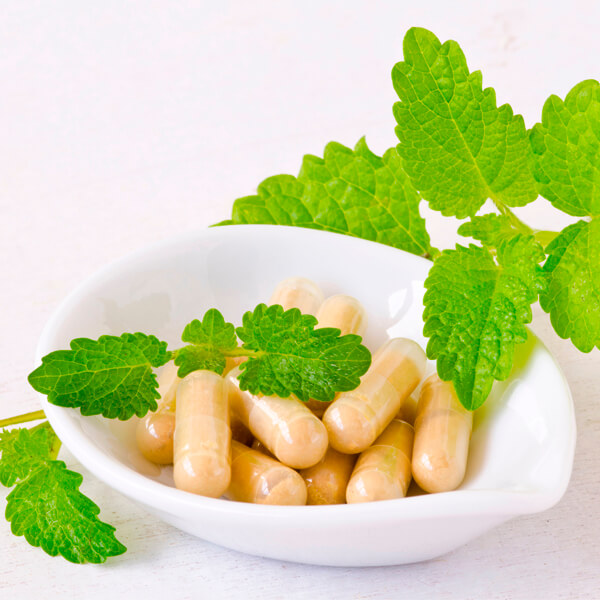
Melissa officinalis demonstrates its ability to improve sleep quality
Insomnia is one of the most common disorders affecting the adult population, negatively impacting quality of life and overall well-being. While there are various pharmacological treatments to address this issue, more and more people are seeking natural alternatives to sleep better without the side effects associated with certain medications. Among the plants with relaxing and anxiolytic properties, Melissa officinalis has stood out as a promising option to naturally improve sleep quality.
What is Melissa officinalis?
Melissa officinalis, also known as lemon balm, is a medicinal plant used since ancient times for its calming effects. Traditionally, it has been used to relieve stress, anxiety, and sleep disorders. Its effectiveness is primarily attributed to the presence of hydroxycinnamic acids, such as rosmarinic acid, which acts on the central nervous system.
However, although many studies have demonstrated its relaxing properties, the results regarding its effectiveness in improving sleep have not always been consistent, probably due to the low bioavailability of its active ingredients.
A new breakthrough: Melissa officinalis
A recent scientific study published in the journal Nutrients evaluated the effects of dry leaf extract of Melissa officinalis on sleep quality in adults. This formulation was designed to improve the bioavailability of the plant's active polyphenolic compounds, such as rosmarinic acid, thus increasing its effectiveness in the body.
The study was conducted according to a prospective, double-blind, placebo-controlled, and crossover model, ensuring more reliable and reproducible results. Participants received either dry leaf extract of lemon balm or a placebo for a determined period, after which various parameters related to sleep quality were evaluated.
Promising results against insomnia
The results obtained were very encouraging. The group treated with Melissa officinalis showed a significant reduction in the Insomnia Severity Index (ISI) score, with an average of 6.8 ± 4.1 points compared to 9.7 ± 3.7 points for the placebo group. This 2.9-point difference (p = 0.003) indicates a notable improvement in sleep quality.

Additionally, a 15% increase in the deep sleep phase (SWS), the most restorative phase of sleep, was observed, while the REM phase, associated with lighter sleep, decreased by 10%. These changes suggest that Melissa not only helps with falling asleep but also improves overall sleep quality.
Safety and Tolerability
One of the most important aspects of this study is that no significant side effects were reported by the participants. The dry leaf extract of Melissa officinalis was found to be a safe and well-tolerated alternative, making it an attractive option for those seeking a natural solution for insomnia without health risks.
How does Melissa officinalis work on sleep?
The sedative effects of Melissa officinalis are largely due to the ability of rosmarinic acid to inhibit the enzyme GABA-T (gamma-aminobutyric acid transaminase). This enzyme breaks down GABA, a neurotransmitter that acts as a natural calming agent for the brain. By blocking its action, Melissa helps to increase GABA levels, thereby promoting relaxation and sleep onset.
Additional Properties and Benefits of Melissa officinalis
In addition to being an excellent option for improving sleep quality, Melissa officinalis offers a wide range of properties that contribute to overall well-being:
- Stress reduction: As mentioned earlier, Melissa has calming effects on the nervous system, making it an excellent choice for reducing stress. Its ability to promote relaxation makes it useful not only for those with sleep difficulties but also for those facing stressful situations in their daily lives.
- Relief from digestive disorders: Melissa has been shown to be effective in relieving various digestive issues such as indigestion, cramps, and bloating. Its antispasmodic and relaxing action can help improve the functioning of the digestive system, especially when consumed after meals.
- Antioxidant and anti-inflammatory properties: The plant contains antioxidant compounds that help neutralize free radicals in the body, reducing oxidative stress and protecting cells from damage. Additionally, by modulating the immune response, it can be beneficial for reducing inflammation.
- Improvement of mood: Thanks to its relaxing effects, Melissa officinalis can also have a positive impact on mood. Its ability to reduce stress and anxiety not only aids in rest but also contributes to an improved sense of overall well-being and emotional balance.
How to take Melissa officinalis for better sleep?
Melissa officinalis can be consumed in various ways, each with its advantages and particularities. The most common methods are infusions, capsules, and liquid extracts. Here are the detailed options to help you choose the one that suits you best.
- Infusions: This is one of the most traditional and well-known ways to consume Melissa. Preparing an infusion with the dried leaves of the plant allows you to enjoy its relaxing properties gently and gradually. To make it, simply add a teaspoon of dried Melissa leaves to a cup of hot water and let it steep for 5-10 minutes. It is recommended to take one infusion per day, preferably before bed, for the best results.
- Capsules: Capsules are a more convenient option for those who prefer a precise and quick dose. In addition, capsules allow for a higher concentration of the active compounds in Melissa, such as rosmarinic acid, which may make the relaxing effects more intense. In this case, the recommended dose varies depending on the product, but generally, 400 mg per day, preferably in the evening, is suggested.
- Liquid extracts: Liquid extracts of Melissa officinalis provide a more concentrated form of the plant. They can be taken in drops, allowing for more flexible and precise dosing. This method can be ideal for those who prefer to avoid capsules or infusions.

Each method has its advantages, and the choice depends on personal preferences and how each individual responds to the plant. While infusions provide a more relaxing and gentle experience, ideal for those who prefer a slower, more natural method, their effect may be more gradual due to the lower concentration of active compounds. On the other hand, capsules provide a more precise and concentrated dose, with faster absorption, making it a practical and effective option for those seeking more immediate results.
To enjoy the benefits of Melissa, it is recommended to take the dietary supplement Melisa + Valeriana by Anastore, a formula that combines standardized extracts of Melissa officinalis and Valeriana officinalis to promote relaxation and rest. The recommended daily dose is 2 capsules, preferably in the evening before bed. Each dose contains 400 mg of Melissa leaf extract standardized to 12% rosmarinic acid and 400 mg of Valerian root extract standardized to 0.8% valerenic acid, ensuring the highest quality and effectiveness.
